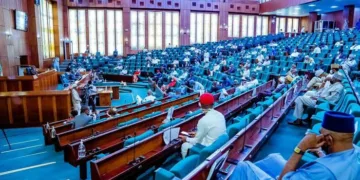Executive secretary of the Bayelsa Health Insurance Scheme (BHIS), Dr. Zuoboemi Agadah, has revealed that over 200,000 residents have enrolled in the state’s health scheme since its full rollout in 2017. This is even as the scheme targets expansion to the rural areas.
Agadah made the revelation during an interactive session with members of the Federated Correspondents’ Chapel of the Nigeria Union of Journalists (NUJ) in Yenagoa, the state capital.
According to him, the scheme is currently active in 203 healthcare facilities across Bayelsa, including 97 hospitals and 106 health centres. Of the total enrollees, more than 100,000 are civil servants who contribute 2% of their monthly salaries, while others in the informal sector pay a monthly premium of ₦2,000, amounting to ₦24,000 annually.
He said the agency’s next focus is to expand coverage to more rural communities in the state. He emphasised the importance of making quality healthcare accessible to people in hard-to-reach areas and reaffirmed BHIS’s commitment to strengthening primary healthcare through strategic partnerships and innovations.
He expressed concern that rising inflation and soaring drug prices are making it hard to maintain quality healthcare services in the state, adding that despite the growing economic pressure, the scheme has not increased its deductions from enrollees since its inception in 2017.
He said, “While the inflation is high, the deductions still remain what we were deducting since 2017 to 2024. How do we cope? The issues of inflation, pharmaceutical companies, technologies and others are posing serious challenges, but we are still rendering the same quality services.
“While we face inflation and high cost of drugs and others, we cannot tell the people that are contributing to contribute more.
As the inflation is high, the hospitals are also telling us that what we are paying them can no longer be sustainable.
“When we designed this programme in 2017, Augmentin was less than one thousand naira but as of 2024, it’s about N25,000 while some are even selling it for N30,000. No government can manage this type of thing,” Agadah lamented.
To address the growing crisis, Dr. Agadah disclosed that the agency plans to establish a Central Drugs Distribution System to ensure affordable and quality medications across the state.
“We are planning to set up a Central Drugs Distribution system so hospitals can get direct drugs from major distribution centres or direct from manufacturers. So, one, the drug will be cheaper. Secondly, all of us are sure of quality, so that any drugs that give problem, we know who to hold responsible and all our hospitals will go there to get drugs in the state”, he explained.
Despite the setbacks, Agadah reiterated the scheme’s commitment to delivering healthcare but emphasised the urgent need for additional funding. “Our challenge is, we still need more money so that we can take care of more people,” he added, appealing to relevant authorities and stakeholders to intervene and support the BHIS for better health outcomes in the state.





